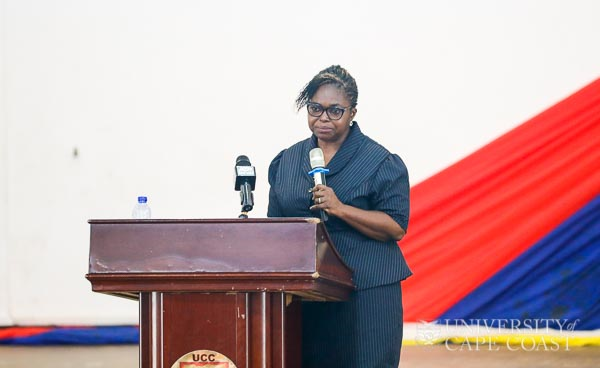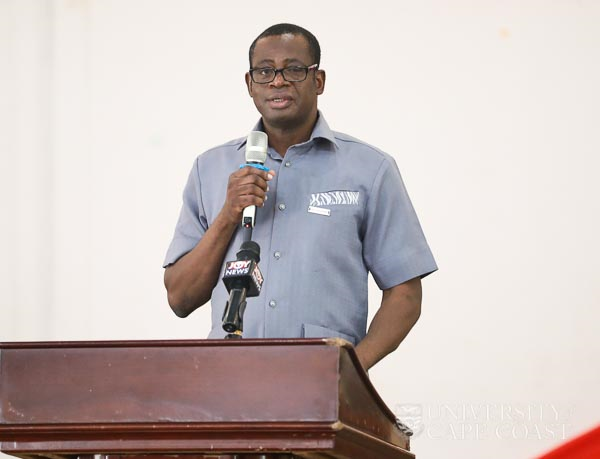The University of Cape Coast (UCC) has marked the 2023 World Mental Health Day (WMHD) celebration with a seminar on the theme, “Mental Health as a Universal Human Right”.
The day, an initiative of the World Federation for Mental Health (WFMH), was first commemorated on October 10, 1992, and is commemorated every year to raise awareness of mental health and the need for stakeholders to support the sector.
A rapid assessment by the Mental Health Authority (MHA) in 2021 established that 16,000 people on the streets of cities, towns and villages across Ghana suffered severe mental illness.
According to the MHA, 41% of Ghanaians suffer psychological distress (ranging from mild, moderate, or severe cases) which costs the nation 7% of its GDP loss.
Dr. Mrs. Charlotte Omane Kwakye-Nuako, Senior Lecturer, Department of Forensic Science-UCC
Speaking on the theme for the event, a Lawyer and Senior Lecturer at the Department of Forensic Science-UCC, Dr. Mrs. Charlotte Omane Kwakye-Nuako, underlined some of the rights that govern mental health in Ghana and what the rights meant for a mental health patient and health practitioners.
According to her, access to mental health is a human right that should not be infringed upon.
She pointed out that the Mental Health Act 2012 clearly proves that there were mental health laws, however, it was unfortunate that its implementation had been bedeviled with challenges.
She pointed out that most health practitioners and society in general do not know their rights.
“As individuals, we ought to understand our own responsibilities when it comes to mental health and our rights to enjoy them”, she posited.
Dr. Kwakye-Nuako backed calls for increased resources to be committed to mental health to improve the general well-being of the populace.
The Head of the Department of Mental Health-UCC, Dr. Jerry Paul Ninnoni
For his part, the Head of the Department of Mental Health-UCC, Dr. Jerry Paul Ninnoni, emphasized there was the need to do a lot in our part of the world to ensure the human rights of mental health patients because “our culture and systems contribute to the stigma against mental health patients”.
He pointed out that about 2.4 million individuals suffer from mental health issues but sadly about 98% do not seek medical attention.
“The question is, all of us have mental health so why is it that when others identify with mental health then the cancer of stigma becomes a problem?” Dr. Ninnoni asked.
The chairman for the occasion, Dr. Akwasi Ayanful, in his closing remarks, advised all stakeholders to contribute positively towards the advocacy of mental health.
“We must all get to know the laws and educate ourselves”, he highlighted.
Source: Documentation and Information Section-UCC



